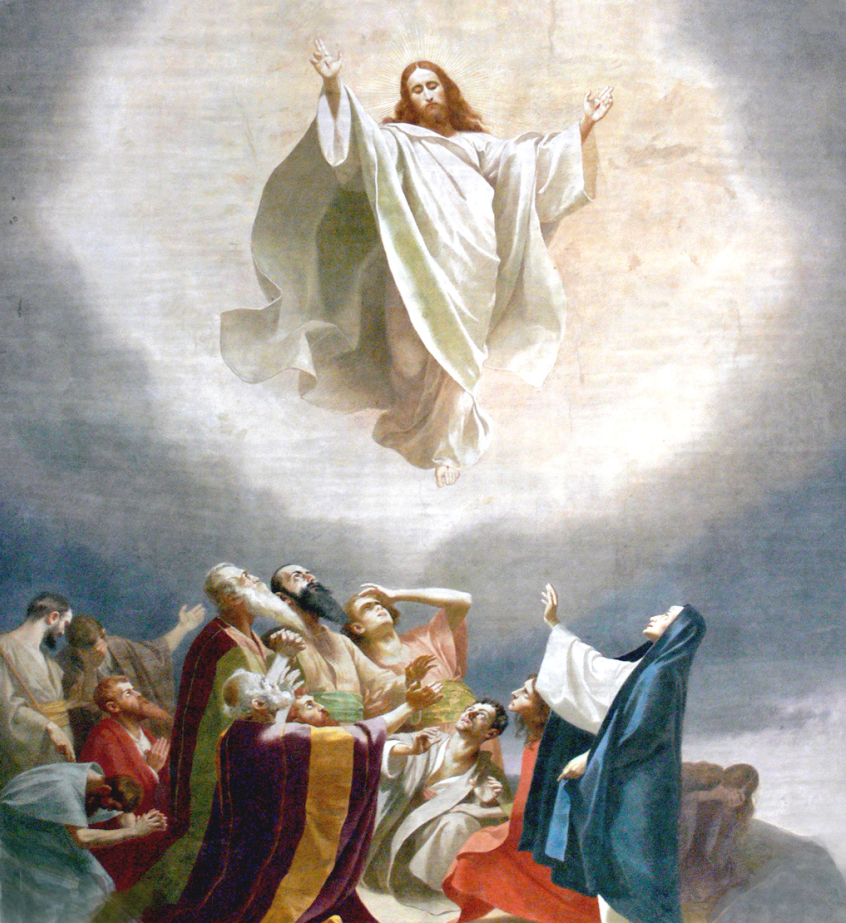Today marks the celebration of Ascension Day in the Christian calendar. What is it and why does it matter?
Ascension refers to the moment when the resurrected Christ concluded his earthly ministry and ascended to sit at the right hand of his father in heaven. It is followed by Pentecost, when the Holy Spirit of God – the 'comforter' promised by Christ – is poured out on the disciples and the Christian church is effectively born.
Luke's gospel (24:50-53) narrates the somewhat strange story:
'When he [Jesus] had led them out to the vicinity of Bethany, he lifted up his hands and blessed them. While he was blessing them, he left them and was taken up into heaven. Then they worshipped him and returned to Jerusalem with great joy. And they stayed continually at the temple, praising God.'

The book of Acts, also authored by Luke, adds that 'a cloud hid him from their [the disciples] sight. They were looking intently up into the sky as he was going, when suddenly two men dressed in white stood beside them."Men of Galilee," they said, "why do you stand here looking into the sky? This same Jesus, who has been taken from you into heaven, will come back in the same way you have seen him go into heaven"' (Acts 1:9-11).
The accounts can be jarring in part for their lack of detail: did Jesus float up ethereally or thrust into the sky like Superman? Anyway, isn't that a bit silly? Does this heavenward ascent not clash with the notion of an earthly, incarnate Christ, and is it suggesting that we too must throw off earthbound existence and float into the 'clouds' of heaven? Much recent theology has sought to challenge any such 'escapist' theology that seeks to leave bodily existence behind.
But the Ascension isn't about endorsing heavenly getaways or Christ abandoning earth – it is rather the enriching of the biblical narrative: the conclusion of one dramatic chapter and the beginning of another, with the Trinitarian Godhead remaining profoundly present to humanity in both. Through the Holy Spirit Christians believe God dwells in the hearts of humankind, expanding the reach of the Gospel from Galilee to the ends of the Earth. Meanwhile, the book of Hebrews speaks of Christ's empathetic ministry of intercession on behalf of believers, as he sits with the father in heaven:
'Therefore, since we have a great high priest who has gone through the heavens, Jesus the Son of God, let us hold firmly to the faith we profess. For we do not have a high priest who is unable to sympathise with our weaknesses, but we have one who has been tempted in every way, just as we are – yet was without sin. Let us then approach the throne of grace with confidence, so that we may receive mercy and find grace to help us in our time of need' (Hebrews 4:14-16).
The heavenward ascent might be baffling to modern minds (it surely confused the disciples too) but that mystery makes it compelling too – a genuinely awesome visualisation of Christ's transcendent victory. But the biblical text reminds believers not to keep their head in the clouds, since there's work yet to be done on earth. As the angels asked the astounded disciples: 'Why do you stand here looking into the sky?'













